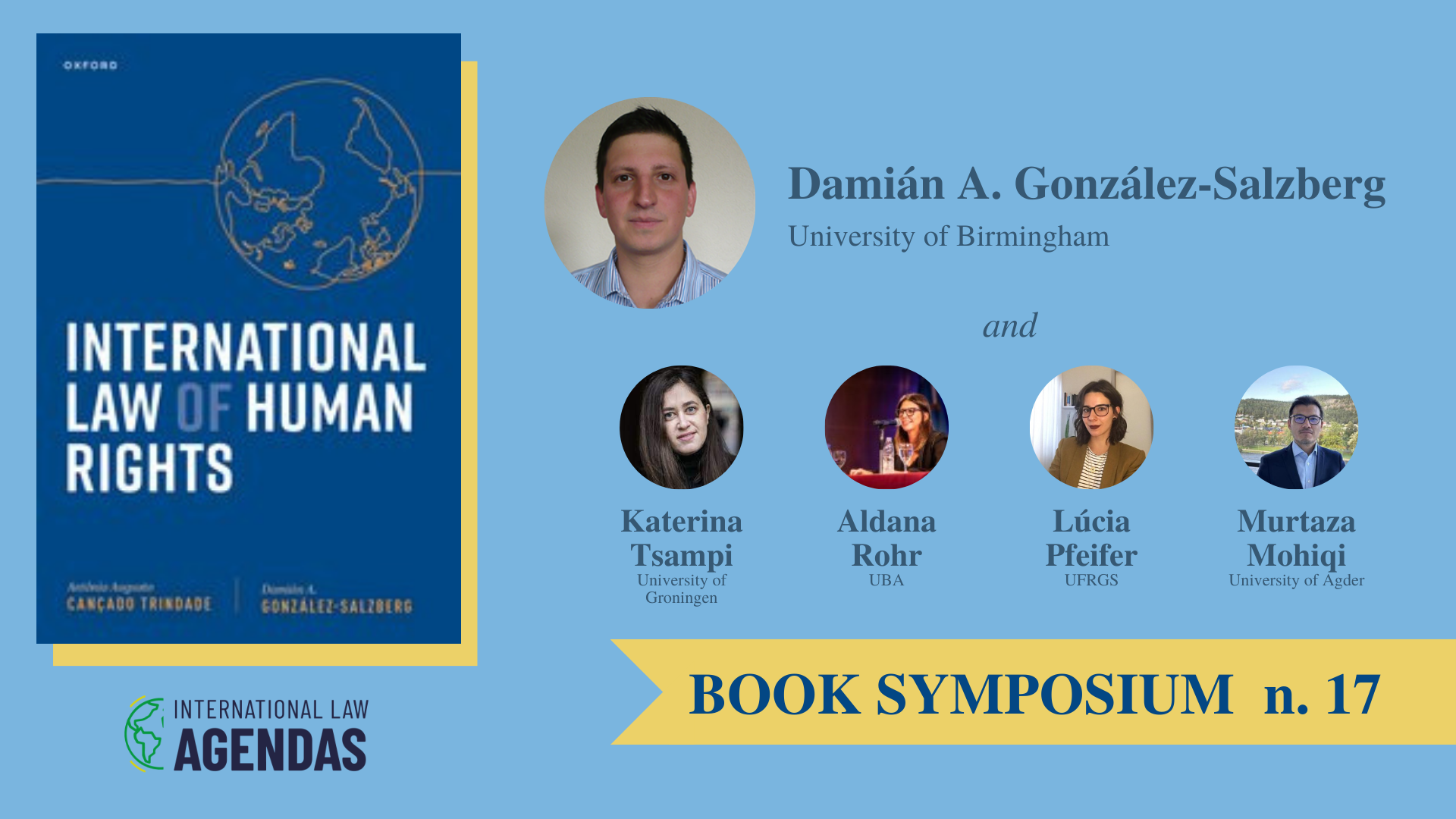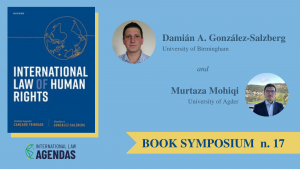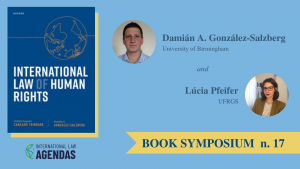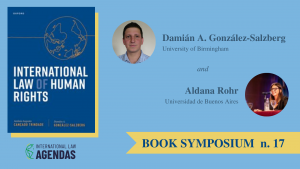I would like to wholeheartedly thank my four esteemed colleagues, Aldana, Katerina, Lúcia, and Murtaza, for taking the time to read International Law of Human Rights and for sharing their reflections on it, as well as my dear colleague Lucas, the instigator of this symposium, for organising it. After five years of work on this joint project, having its cherished main output, our book, exposed to academic reviews is a seriously daunting experience, but being confronted with such kindness and generosity in the reviewers’ comments was a truly overwhelming reward. I am thankful to the four reviewers for their observations, which certainly provided extensive food for thought for the below reply, in which I address some of the elements that had been discussed across the reviews.
Let me start by discussing the Global South approach adopted by our book; a key feature highlighted by all four reviewers. Indeed, as I have mentioned in the book’s Preface, a main inspiration for writing this book was our shared belief that the academic material used for teaching and learning in English-speaking university classrooms was characteristically Western. It is, therefore, rewarding to see that the reviewers seem to agree on that our textbook, produced by two Latin American scholars, provided a more global take on the field of the international law of human rights, by incorporating a Global South perspective. Nonetheless, as highlighted by Murtaza Mohiqi, shortcomings in its approach might subsist, such as difficulties that can arise from its use in certain Global South jurisdictions where, for instance, religious stances might clash with our views on specific topics, such as gender equality and freedom of expression. On this point, it is perhaps essential to bear in mind the diverse and multifarious realities encompassed by the idea of the Global South, which perhaps could be more accurately referred to in the plural, even if seemingly oxymoronic, form as Global South(s).
A further aspect of our book all reviewers discussed is its critical approach to the discipline, including its engagement with different ‘critiques’. As asserted in Chapter 1, a ‘critique’ of a field is not an expression of disapproval, but an analytical method that focuses on aspects of a discipline that usually remain unproblematised, due to the overlooking of existing problems and inconsistencies. I particularly enjoyed not only presenting theoretically grounded critiques in Chapter 1, but also bringing these critiques back when dealing with substantive rights in Chapters 9 and 10, as tools for shedding light on particularly problematic aspects of human rights. Certainly, all reviewers swiftly understood that this book was written by two critical scholars that also shared an unwavering conviction in the power of human rights for improving people’s lives. In our book, we undertook different critiques of the international law of human rights with an indubitable purpose of engaging with them to drive the discipline forward.
I also wanted to delve into two distinctive elements picked up, respectively, by Katerina Tsampi and Lúcia Pfeifer, that of the dated classification of human rights into different categories, and that of the relationship between rights and time. Both these topics were of particular interest to Antônio, who had written extensively on them before this book. Our book explicitly refused to join in the tradition of distinguishing human rights in two categories, which would in turn determine strict differences among them, especially in terms of their timely enjoyment and justiciability. We categorically reject the validity of such a restrictive view on rights, which is only explained by dated politicised views. We strongly subscribe to the idea that any distinction among rights is an artificial construct that has had a huge detrimental impact on the protection of certain rights, which is a historical deficit that needs redressing. Concerning time, over the years, Antônio reflected extensively upon multiple dimensions of how ourselves and our human rights exist in time and how time impacts on the enjoyment of rights. We, therefore, set up Chapter 2 to be about the development and evolution of the international law of human rights. However, we also highlighted that we do not envision this legal system to have a predetermined path of development, but on the contrary, for us all to bear a degree of responsibility in aiding an ever-increasing protection of rights for every person in all circumstances.
Before concluding this response, I want to engage with some of the extremely kind remarks Aldana Rohr provides on the book’s pedagogical approach. Our book was certainly conceived as material to be used for imparting a course on the international law of human rights at university (both undergraduate and postgraduate) level and much thinking went into how to make it the best possible tool for such a purpose. With this aim in mind, the features we developed included: providing case summaries of some of the most important decisions discussed throughout the text; creating an extensive net of cross-references (with hyperlink in the digital version of the book); marking certain sections as ‘further reflections’, allowing for a stepped incursion into deeper aspects of topics; devising a specific Chapter (Chapter 3) for those who might be studying this branch of international law but might require further knowledge (or a refresher) of general public international law; and presenting certain issues as ‘critical debates’, inviting the reader to reflect and make their own minds on current controverted topics.
Lastly, Aldana also refers to our book as a book that is ‘alive’, and that is exactly how I want to think about it. Although unknown at the present time, I hope that our book will live beyond this first edition. With this expectation in mind, I want to invite all readers to take a critical approach not only to the study of the international law of human rights, but also to the book itself. As I continue to repeat in every talk I give on the book, I am sincerely open to receiving constructive feedback and suggestions on how to continue helping the evolution of this book and invite all readers who have productive thoughts and comments to send them to me for when (and if) the time comes to write a follow-up edition (I have already noted down Katerina’s comment on the ‘margin of appreciation’ for this purpose).
-

Damian is an Associate Professor in Law, specialising in International Law and Human Rights. His primary interest is in the use of different theoretical and methodological tools to explore the protection of human rights under international law. His research on the European Court of Human Rights and on the Inter-American Court of Human Rights has appeared in leading peer-reviewed journals, such as Harvard Human Rights Journal, American Journal of International Law – Unbound, American University International Law Review, Human Rights Law Review, Modern Law Review, Journal of Law and Society, and Northern Ireland Legal Quarterly.





